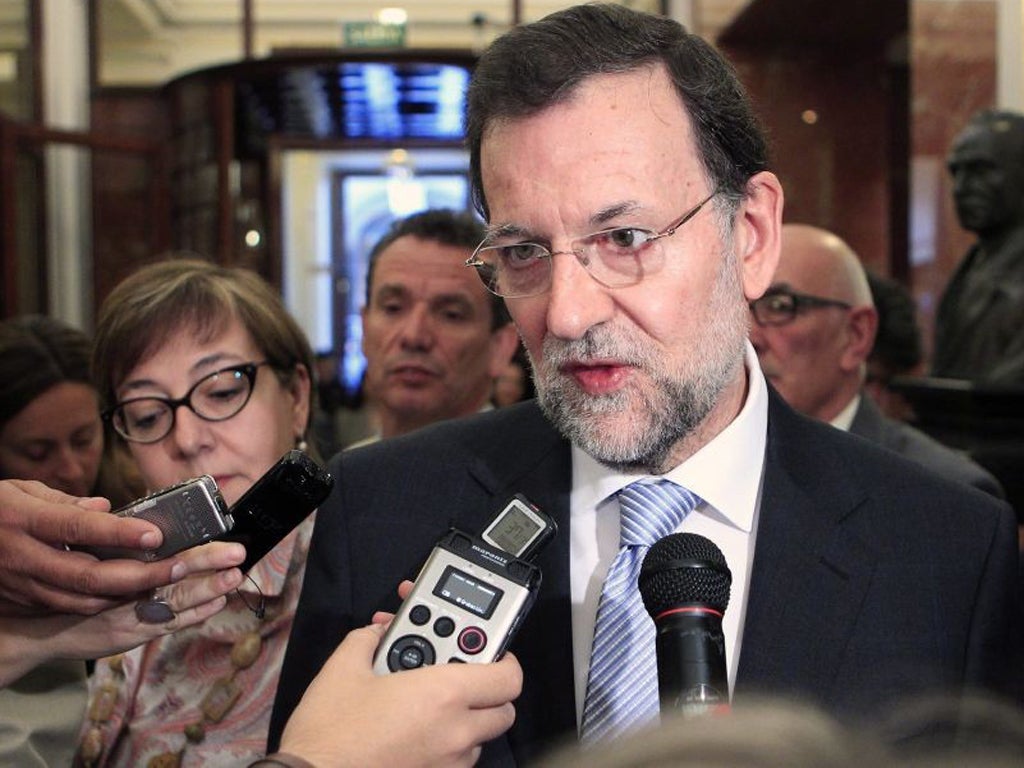We risk being shut out of financial markets, warns Spanish PM Mariano Rajoy

The Spanish Prime Minister has vigorously defended the austerity policies that united thousands who protested against the harsh cuts this week by warning that the country risked being shut out of the financial markets unless it works to bring its debt burden under control.
As Madrid's borrowing costs spiked to levels widely seen as unsustainable, Mariano Rajoy warned that there is a "a serious risk that [investors] will not lend us money or they will do so at an astronomical rate."
His comments came as investors and policymakers, mindful of the threat of contagion, kept a nervous watch on Greece's woes.
Talking to reporters in the hallways of the Spanish Parliament, Mr Rajoy said that, with risk-premium that investors attach to Spanish debt rising to record levels, the country faced a "difficult and complicated situation".
"The risk premium has risen a lot and that means that it is difficult to finance yourself at a reasonable price."Given this backdrop, his government, he said, was "taking the measure we have to take. We must continue cutting public spending."
As if to underline Mr Rajoy's point, the interest rate that investors charge to lend money to Spain rose to around 6.5 per cent yesterday before retreating to around 6.3 per cent in afternoon trading – levels that eventually paved the way for costly international bailouts for Greece, Portugal and Ireland.
Meanwhile, the interest rates faced by Spain diverged further from those faced by Germany, the country seen as the safest bet in the currency bloc. The difference or spread between two interest rates touched highs above 500 basis points, its highest level since the euro was introduced, highlighting the risk that investors attach to Spain.
A key fear hitting Spain is that if Greece is allowed or obliged to leave the euro – something that Mr Rajoy, for one, opposes, calling it "a mistake" – it will set a dangerous precedent for countries with financial difficulties.
With recent figures confirming that the Spanish economy has been in a double-dip recession since October and unemployment standing at 24.6 per cent – youth unemployment is even higher at more than 50 per cent – there is little doubt whether Spain falls into that category. Mindful of the woes afflicting the eurozone, the Spanish leader also warned that the "euro needs to be strengthened".
"I don't want Greece to leave the euro. I think that would be a big mistake, very bad news," he said.
Subscribe to Independent Premium to bookmark this article
Want to bookmark your favourite articles and stories to read or reference later? Start your Independent Premium subscription today.

Join our commenting forum
Join thought-provoking conversations, follow other Independent readers and see their replies